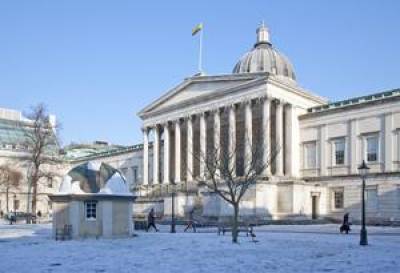
Abstract
Excess-from the Latin excessus, from excedere 'to go out, surpass'-is defined by the Oxford Dictionary as "an amount of something that is more than necessary, permitted, or desirable". The notion of an amount implies a quantitative factor not reducible to representation.
The notion of investment lies at the core of Freud's understanding of psychic functioning. From his 'Project' (1950 [1895]), written in 1895 but published after his death, to the Outline of Psychoanalysis (1938), Freud attempts to map the links between the somatic and the psychic. Already in Studies of Hysteria (1895), trauma is conceived of as an overwhelming event that breaches the subject's protective shield, with catastrophic results for the mind. In 1920, however, Freud postulated the existence of a drive that does not correspond to any representation but is expressed though the repetition compulsion. The structural model of the mind instituted a close relationship between the id and the soma. The id is described as "chaos, a cauldron full of seething excitations. The psychoanalytic work becomes concerned with how the experience of the infantile traumatic past in its unmetabolizable aspects is repeated in the consulting room. If the drives are at the root of psychical activity, this "implies that something is basically in excess, an overload charge on the mind, linked with the bodily exigencies of the drives".
In this interdisciplinary seminar, Rosine Perelberg will identify some regressive processes that take place in the analyst's mind that enable her to make sense of psychic processes that have not reached representation. Rosine's paper argues for the crucial relevance of the analyst's internal state of receptivity in the processing of patients' material that has not been fully represented. It also emphasizes the place of temporality in creating a triadic space in an analysis as it relates the here and now with the there and then in the work of après-coup.
Speaker biography
Rosine Jozef Perelberg is a Training Analyst and Supervisor and a Fellow of the British Psycho-Analytical Society. She is Visiting Professor in the Psychoanalysis Unit at University College London, and Corresponding Member of the Société Psychanalytique de Paris. Previously she gained a PhD in Social Anthropology at the London School of Economics, University of London.
She has published widely in international scientific journals including in Revue Française de Psychanalyse, The International Journal of Psychoanalysis and Psychoanalytic Quarterly. Her books include Female Experience: Four Generations of Women Psychoanalysts on Work with Women; Psychoanalytic Understanding of Violence and Suicide, Dreaming and Thinking, Freud: A Modern Reader , and Time and Memory. She has written Time, Space and Phantasy and Murdered Father, Dead Father; revisiting the Oedipus Complex (2015). In 2006 she was named one of the Ten Women of the Year by the Brazilian National Council of Women. She has a psychoanalytic private practice in London.
 Close
Close

